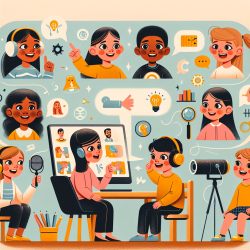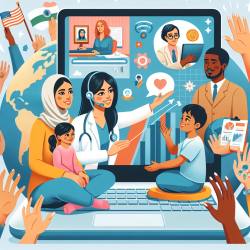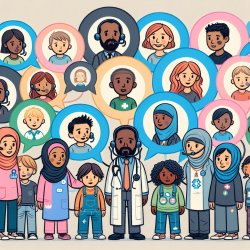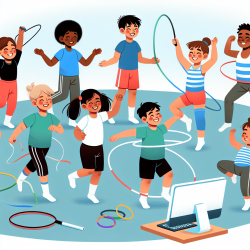In the field of special education, particularly when working with deaf-blind individuals, the development of auditory skills is crucial for improving the quality of life and independence. One aspect of auditory skills that has garnered attention is sound localization - the ability to identify the origin of a sound in the environment. A recent study titled "Influence d'un programme d'orientation-mobilité sur les capacités de localisation auditive de personnes sourdes-aveugles" sheds light on the potential benefits and limitations of orientation and mobility programs in enhancing sound localization abilities in individuals who are deaf-blind.
The study, conducted by Danielle Cloutier and colleagues, aimed to assess the impact of a structured orientation and mobility intervention program on the sound localization capabilities of deaf-blind participants. Despite the intuitive link between orientation and mobility training and improved auditory localization, the study's findings present a complex picture.
Key Findings:
- The introduction of the orientation and mobility program did not have a significant effect on the participants' sound localization abilities.
- The content of the program, as implemented, might not have been adequate to enhance these skills effectively.
- It remains possible that localization performance cannot be improved either because it is an unlearnable skill or because the participants already had optimal performance levels.
- The localization test might not have been sensitive enough to detect a change in performance.
These findings suggest that while orientation and mobility programs are integral to the rehabilitation of individuals with visual and auditory impairments, the specific focus on improving sound localization skills may require a reevaluation of program content and methodologies. However, it's important to note that the limited number of participants and the unique characteristics of their impairments could have influenced the outcomes.
Implications for Practitioners:
As special education professionals, it is essential to derive actionable insights from research to enhance our practice. Here are some considerations based on the study's findings:
- Individualized Program Design: Orientation and mobility programs should be tailored to the specific needs, abilities, and learning pace of each participant. This individualization might include focusing on the development of other compensatory skills that can aid in orientation and mobility.
- Comprehensive Assessment: A thorough assessment of a participant's auditory capabilities, including sound localization, should precede the development of the training program. This assessment can help in setting realistic goals and choosing the most appropriate training strategies.
- Integration of Auditory Training: Incorporating specific exercises designed to enhance auditory discrimination, sound identification, and localization might improve the effectiveness of orientation and mobility programs.
- Research and Collaboration: Continuing to engage with research and collaborate with audiologists, speech-language pathologists, and other specialists can provide a multidisciplinary approach to developing more effective training programs.
While the study highlights challenges in enhancing sound localization skills through orientation and mobility programs, it also opens the door for further research and innovation in this area. By embracing a collaborative, research-informed approach, practitioners can continue to improve the independence and quality of life for individuals who are deaf-blind.
For those interested in delving deeper into the research and exploring the methodologies and findings in detail, I encourage you to read the original paper. To read the original research paper, please follow this link: Influence d'un programme d'orientation-mobilité sur les capacités de localisation auditive de personnes sourdes-aveugles.










